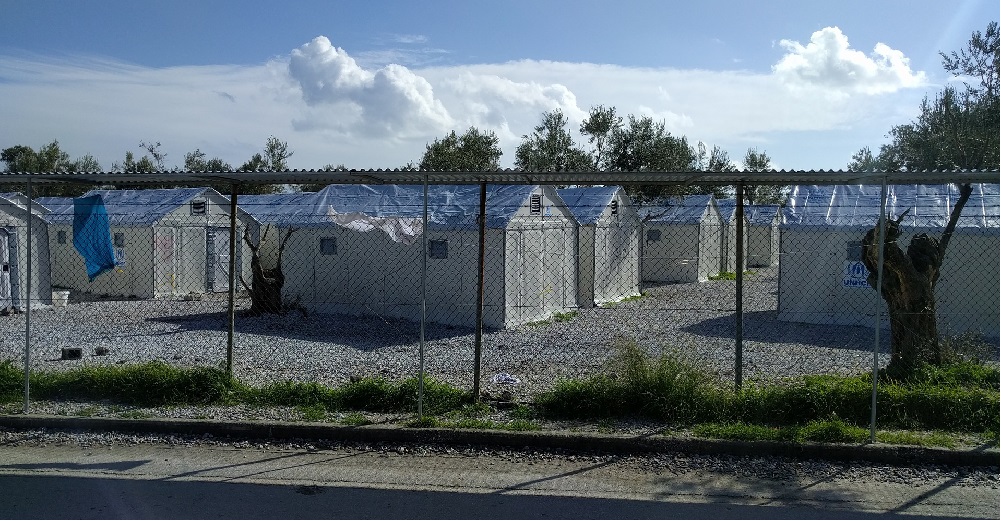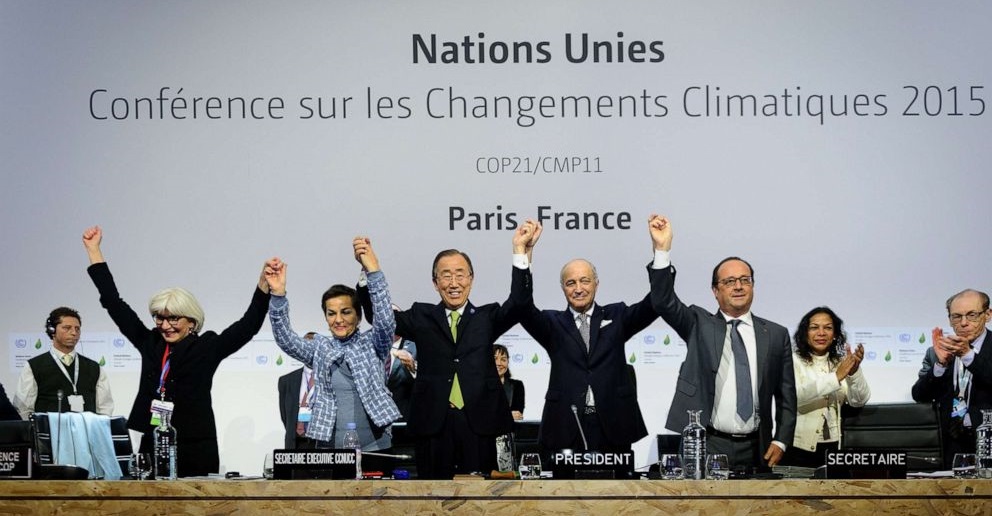Making Responsibility-Sharing Operational: Comparing Asylum and Climate Governance
International law demands that refugees obtain humanitarian protection in a safe country. However, which country should be responsible for which refugee remains a contested and unresolved question of international asylum governance – in particular in the event of refugee emergencies. Sharing the common responsibility of humanitarian protection is motivated by distributional fairness and the aim of overcoming a collective action problem.
To this day, such efforts tend to fail in practice as most countries are reluctant to enter binding commitments on refugee intakes. International climate governance could provide ideas for how to do this, and in this way offers an important avenue for rethinking refugee responsibility-sharing. Not only does climate governance provide an example of how different equity principles can be used to allocate state responsibilities, it also helps to identify the prospects and limits of responsibility-sharing in refugee protection.
While the general norm of responsibility-sharing, i.e. a fair and equitable allocation of refugees across receiving countries, finds wide support by both states and citizens, its operationalization is glaringly lacking. Progress on that front requires a better understanding of translating the abstract norm of responsibility-sharing into concrete duties of states by differentiating the commo responsibility of protection.
As we show in our recent article, climate governance offers an illuminating comparison to better understand different options and challenges of establishing effective responsibility-sharing in asylum governance. The two policy areas are constituted by similar governance challenges as they both require collective action among states to provide an international public good by distributing responsibilities. In climate governance, this is preserving a stable climate through a collective effort to fairly distribute climate mitigation responsibilities among states. In asylum governance, this is providing humanitarian protection through a collective effort to fairly distribute protection responsibilities among states.
Lessons from Asylum and Climate Governance
Responsibility-sharing requires the determination of specific state duties in a fair and equitable manner. A range of equity principles are available for that purpose, such as the ‘polluter pays’ principle (responsibility allocation proportional to states‘ contribution to the problem) or the ‘capacity principle’ (responsibility allocation proportional to states‘ capacity to resolve the problem). Any allocation mechanism seeks to commit states to rules regarding how each state should contribute to the international public good. The history of refugee governance shows that the operationalisation of responsibility-sharing has been approached in two distinct ways that resemble experiences in international climate governance: a fixed ‘distribution key’ and a flexible global framework.
A fixed ‘distribution key’
During the so-called refugee crisis of 2015, the EU Commission proposed a ‘distribution key’ to relocate refugees to its member states. Using objective, quantifiable as well as verifiable indicators to determine each member state’s refugee share, this was the most comprehensive attempt to establish a binding mechanism of responsibility-sharing. However, it failed to be successfully implemented during the crisis or to be installed as a permanent allocation scheme. The asymmetric interests between states prevented them from entering binding commitments that would oblige them to higher refugee intakes.
In a similar vein, states agreed on fixed reduction targets in the 1997 Kyoto protocol, the first comprehensive agreement to tackle climate change. However, multiple big emitters either refused to ratify the protocol (e.g. the United States) or left it after the first period (e.g. Canada). In combination with growing emissions from emerging economies the agreement ultimately covered less than 20% of worldwide emissions and failed to reverse the trend of growing emissions.

EU distribution key: In response to the 2015 ‘refugee crisis’, the European Union sought to establish a binding distribution key for refugees.
Flexible global framework
More recently, ambitious efforts to establish responsibility-sharing have resumed on a global level. The UN Global Compact on Refugees (2018) has the objective of strengthening international cooperation in asylum governance. It was initially envisioned to focus on equitable responsibility-sharing, but this goal has been substantially attenuated as states did not accept additional binding commitments for responsibility-sharing. While this outcome appears sobering at first sight, more recent developments in climate governance demonstrate that a global consent on common responsibilities could be a first step towards effective responsibility-sharing.
In the negotiations on a successor of the Kyoto protocol, states were reluctant to agree on strict emission reduction obligations. Instead, the Paris Agreement leaves the determination of a fair contribution to the states. However, it contains binding obligations on how to prepare, communicate, and maintain contributions. Moreover, it commits all countries to increase their level of ambition over time.
The success of the Paris Agreement in achieving the necessary emission reductions and adapting to climatic changes will have to be closely examined and assessed. Current commitments and pledges are not on track to achieve the goals of the Paris Agreement. Still, it seems fair to say that it was successful in including all parties and committing them to a first step towards joining the collective efforts in addressing climate change.

Paris Agreement: Committing the world on climate change mitigation
Thus, there are different ways of addressing international responsibility-sharing. First, the EU distribution key and the Kyoto protocol were binding instruments (hard law) with a fixed rule to determine states’ ‘fair shares’. They were largely ineffective in furthering their policy aim due to lacking compliance or screening out by states. Second, the Global Compact on Refugees is a non-binding instrument (soft law), and the Paris Agreement is a combination of soft and hard law and non-obligations. Both leave it to states to determine their specific contributions to the common responsibility. These global frameworks are based on lengthy negotiations but were successfully adopted in the end. They do not, however, include strictly binding commitments and they lack specificity on the actual allocation of protection responsibilities.
Trade-Offs in the Design of Responsibility-Sharing
From the comparison of efforts to establish effective responsibility-sharing in asylum and climate governance, we can draw lessons on how to design an effective framework of international responsibility-sharing. Just as with any international cooperation, responsibility-sharing is effective if it involves sufficiently strict commitments of states but also sufficient support of and compliance to these commitments. This creates important trade-offs: any allocation mechanism needs to balance binding enforceable rules based on specific and predictable criteria and the flexibility to account for country-specific and time-varying circumstances.
From these trade-offs, we are reminded of the challenges of operationalizing responsibility-sharing in asylum governance as well as the lack of ‘one-size-fits-all’ solutions. The most promising path forward in our view is to be aware of conflicting rationales and to strike an optimal balance between them. Recent achievements of the Paris Agreement and the Global Compact on Refugees represent such an approach: a comprehensive agreement committed to a common responsibility, and one that allows for a bottom-up approach in defining states’ contributions with institutionalized peer pressure to contribute to the global common good.
Philipp Lutz is a Postdoctoral researcher at the Department of Political Science and International Relations, University of Geneva and contributes to the nccr – on the move project Migration Governance through Trade Mobilities.
Anna Stünzi is a Postdoctoral researcher at the University of St. Gallen.
Stefan Manser-Egli is a doctoral researcher at the Maison d’analyse des processus sociaux (MAPS) in Transnational Studies at the University of Neuchâtel and contributes to the nccr – on the move project Transnational Mobilities, Diversification and Multi-Scalar Place-Making.
References:
– Lutz, Philipp, David Kaufmann, and Anna Stünzi (2020). Humanitarian Protection as a European Public Good: The Strategic Role of States and Refugees. Journal of Common Market Studies, 58(3), 757–775.
– Lutz, Philipp, Anna Stünzi, and Stefan Manser-Egli (2021). Responsibility-sharing in refugee protection: Lessons from climate governance. International Studies Quarterly, 65(2), 476–487.
This is a repost of a blog that has originally been published in May 2021 at the Rethinking Refuge Website of the Refugee Studies Centre of the University of Oxford.


